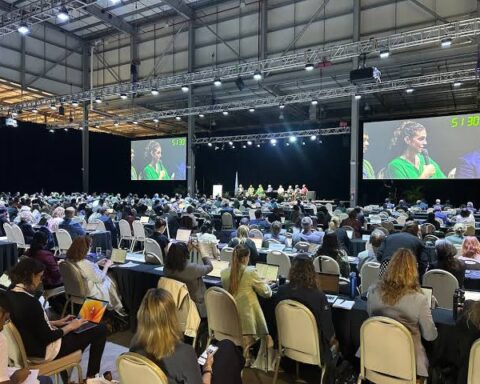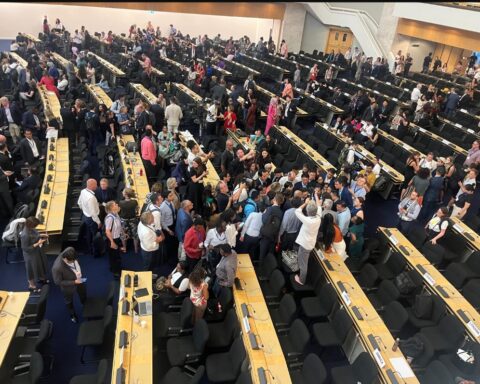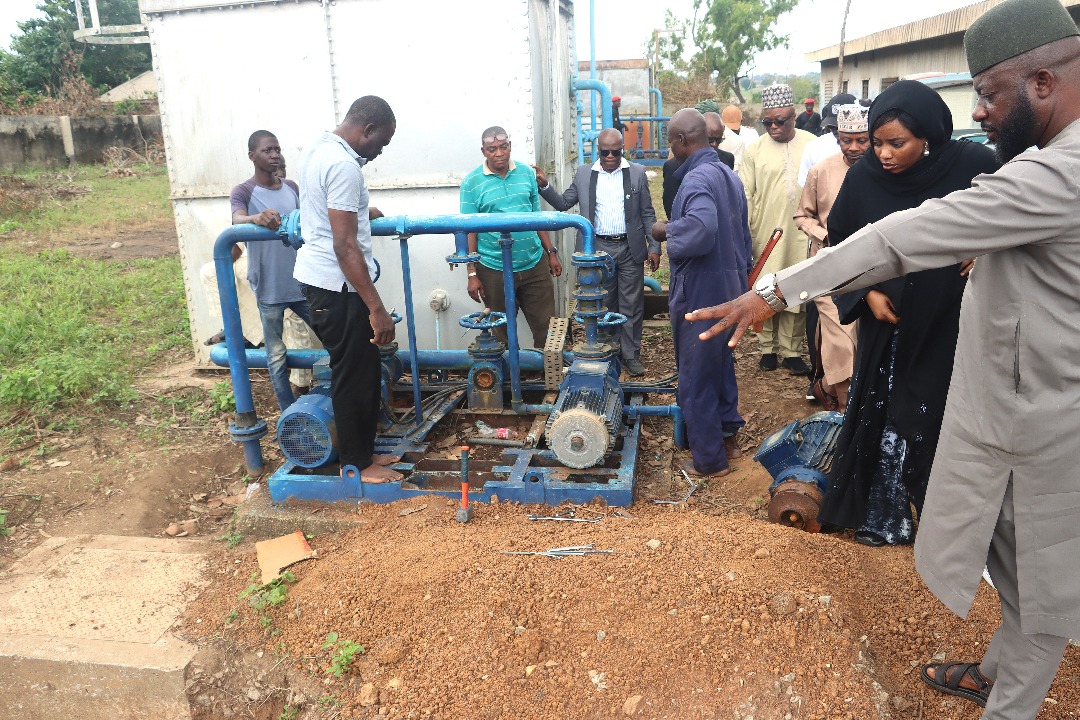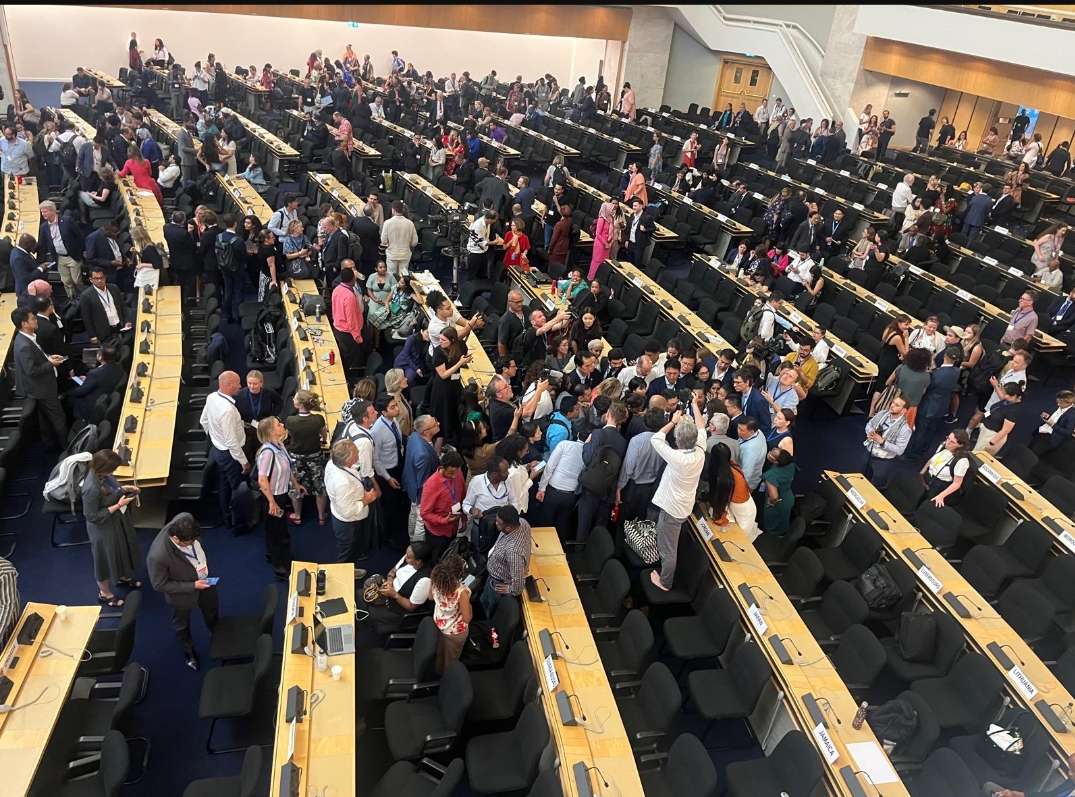As the historic Plastics Treaty negotiations reached their final hours in Geneva on Thursday, global waste picker leaders issued a resounding call to governments to enshrine a mandatory Just Transition in the final agreement warning that anything less would fail the 40 million waste pickers worldwide who are on the front lines of plastic recovery.
Waste pickers, who recover 60% of all plastics sent for recycling globally, say their work powers the circular economy but remains largely invisible in law and policy.
According to the International Alliance of Waste Pickers (IAWP), 58% of waste pickers’ income comes from plastic recovery, yet many face hazardous working conditions, poverty wages, and no social protection.
“A plastics treaty without waste pickers is a treaty that fails,” said Marica Tagliero Vazquez of Coop Les Valoristes in Montreal, Canada. “Recognition must lead to a Just Transition secure income, strong social protection, and protection from the toxic hazards we face every day.”
Kulsum Begum of the Bangladesh Waste Pickers Union described the movement as global and urgent. “We are 40 million waste pickers, in every country, on every continent working where inequality, climate change, and conflict hit hardest. Recognition is not charity, it’s justice,” she said.
“A plastics treaty must guarantee us a living income, safe livelihoods, and opportunities in the circular economy.”
From Africa, Maddie Koena of the South Africa Waste Pickers Association and Treasurer of IAWP underscored the need to reclaim the dignity of their work.
“We collect, sort, transport, and sell discarded materials for recycling or reuse. This term tells the truth about our work, our identity, and our fight for recognition. It turns ‘waste’ into livelihood, and invisibility into power,” she said.
Currently, Article 10 of the draft treaty includes only a voluntary provision for Just Transition a position waste picker leaders reject as insufficient.
They argue that over 113 countries have already expressed support for explicit recognition of waste pickers, and that such recognition must carry binding obligations.
Waste pickers in Africa and across the Global South often operate in informal or cooperative settings, many from historically marginalized communities, including survivors of violence, oppressed castes, racial and ethnic minorities, and Indigenous peoples.
Their work is critical to reducing plastic pollution, yet exposes them to dangerous chemicals, extreme weather, and unsafe environments.
Negotiations in Geneva have seen unprecedented participation from grassroots worker representatives, marking a shift towards centering labour rights in environmental treaties.
However, advocates fear that without enforceable language, the final text could leave millions vulnerable.
“The circular economy cannot be built on the backs of invisible workers,” said one African delegate in Geneva. “If the treaty recognises waste pickers but does not protect them, it is nothing more than words on paper.”
As the clock runs down on the talks, waste picker representatives remain firm: a Plastics Treaty that guarantees secure income, safe working conditions, and strong social protection is not just an environmental necessity it is a matter of justice.
By Dare Akogun








